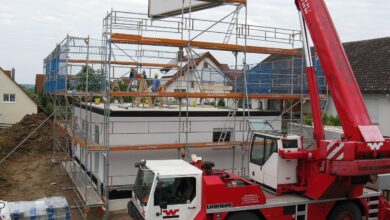Stakeholders: A growing population will increase demand for homes

According to Lukman Shobowale, co-founder and head of business development at Dukiya Investments, Nigeria’s fast urbanization and growing population will fuel housing demand in 2024. He stated in an interview with The PUNCH that housing and real estate have contributed to the non-oil sector’s continued participation in 2023.
“2024 is not likely to be any different,” he stated. The two main causes that will fuel the demand for housing in 2024 are urbanization and Nigeria’s growing population, which is expected to reach 400 million by 2050.
“The sector is also expected to benefit from important government policies, such as the government’s intervention through ongoing mass housing schemes at the national level. At the sub-national level, investment is expected to come from the ongoing urban renewal projects already undertaken by several sub-national governments, including Kaduna, Lagos, Kwara, and a host of other states.”
Shobowale claims that even if the housing budget for 2024 looks small in comparison to the amount of money needed if the government demonstrates a willingness to collaborate with participants in the private sector, it would greatly solve important issues in the industry.
Similarly, Olorunyomi Alatise, an estate surveyor, stated that the country’s housing market is challenged by the projected increase in population and the ongoing urbanization trend.
Related News
The construction of suitable housing infrastructure frequently lags behind this fast urbanization, leading to a significant discrepancy between supply and demand. Rising property prices, higher rental expenses, and a growth in the number of informal settlements with subpar living conditions are some of the potential effects of this inequality.
Nigeria has 53.52 percent of its total population living in urban areas, according to the World Bank.
Alatise pointed out that a number of factors, including a lack of infrastructure investment, difficulties with land use planning, and economic considerations, could be to blame for the nation’s housing scarcity in metropolitan areas.
“Inadequate infrastructure development, including utilities and roads, makes it more difficult to build housing projects on time and widens the gap between supply and demand.
“Economic variables, such income inequality and low affordability, exacerbate the problems and make it impossible for a large segment of the population to find appropriate housing options. He stated, “These problems demonstrate the urgent need for all-encompassing solutions that address the short- and long-term components of the housing situation.
According to Alatise, the nation’s housing crisis calls for a multipronged strategy combining cooperation between the public, commercial, and non-governmental sectors.
“More investment in affordable housing development, expedited land use planning procedures, and the adoption of policies supporting it are crucial elements of a sustainable solution,” he continued.
“Nigeria may successfully manage the difficulties brought about by urbanization and population expansion by implementing a comprehensive plan, which will guarantee that the housing supply can sustainably serve the country’s growing urban population in the ensuing decades.”




